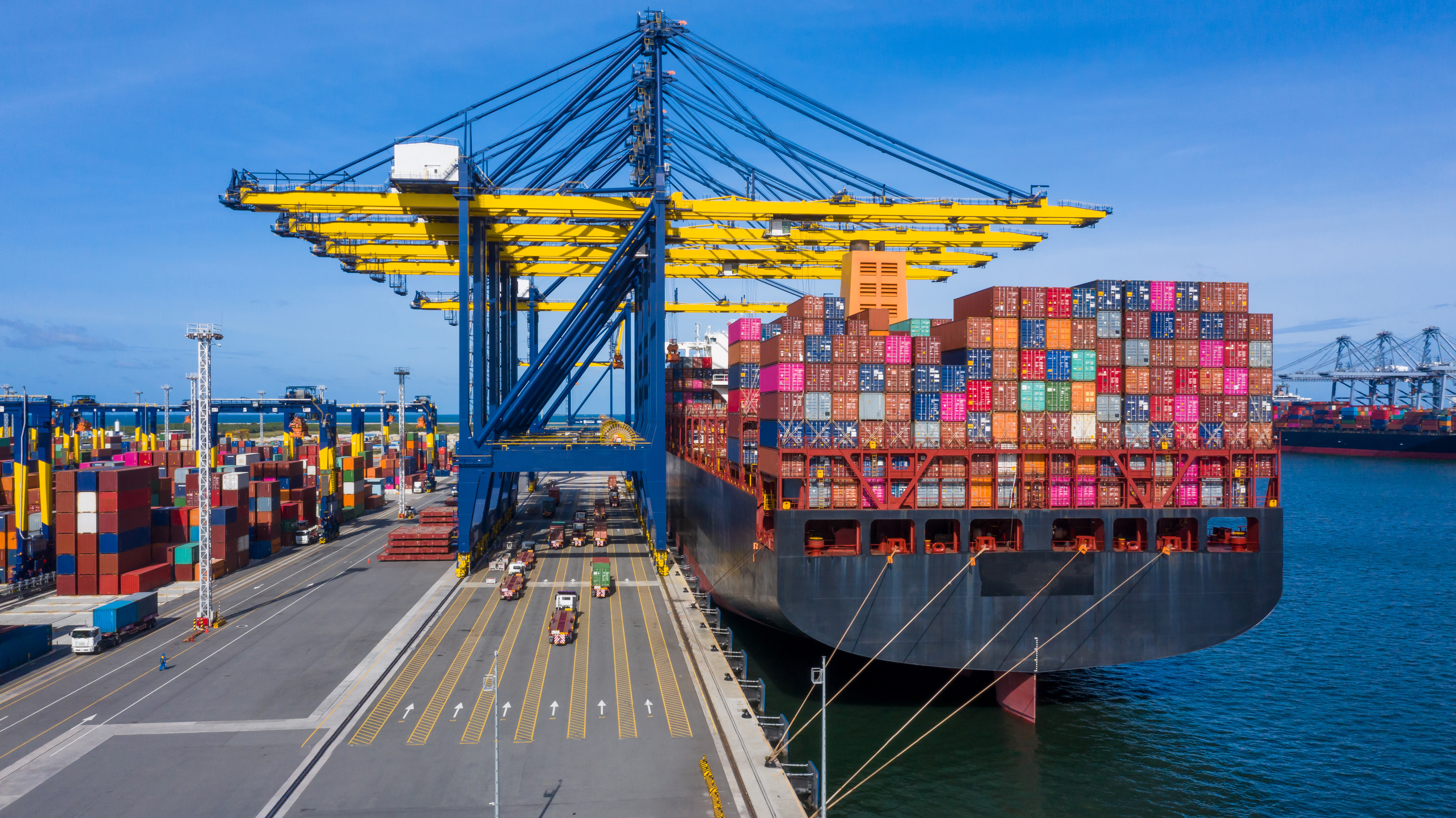An oil spill is an ‘all hands-on deck!’ moment, inviting everyone from insurers, charterers, owners, the U.S. Coast Guard, local and state authorities, property, and ecological interests, and more to get involved. Tying all these parties together is the Oil Pollution Act of 1990 (‘OPA’).
OPA!
In Greek, the term OPA means ‘to jump’. Similarly, OPA in the U.S. gets the party started, with everyone quickly jumping into action in accordance with OPA’s requirements.
OPA was enacted in response to the Exxon Valdez spill in 1989. However, OPA’s reach extends far beyond oil spills from oil tankers to include property with storage tanks, pipelines and abandoned wells where discharges of oil could escape to surface waters.
When enacting OPA, Congress noted that the existing federal and state laws provided inadequate clean-up and damage remedies, required large taxpayer subsidies for costly clean-up activities and presented substantial burdens to an injured party’s recoveries. OPA was intended to cure these deficiencies in the law.
It is not difficult to impose liability under OPA. Generally, a claimant must show that (1) the defendant is a responsible party, (2) for a vessel or facility, (3) from which there has been a discharge of oil or substantial threat of a discharge of oil, (4) into navigable waters and (5) that resulted in removal costs and damages.
Being responsible
Under OPA, the polluter pays. Known as the ‘responsible party’, the polluter is liable for all removal costs and damages resulting from either an oil discharge or a substantial threat of oil discharge into navigable waters of the United States. A responsible party’s liability is strict, joint and several. In the case of a vessel, the responsible party includes any person owning, operating or demise chartering the vessel.1
Damages recoverable from a responsible party are vast and far reaching. Broadly speaking, a claimant may recover: damages to natural resources; economic losses for destruction of real property; loss of use; lost profits; and, of course, clean-up expenses.
What’s your limit?
Under certain circumstances, the Oil Spill Liability Trust Fund (‘OSLTF’) may reimburse a responsible party for its uncompensated removal costs and damages. In order to receive OSLTF reimbursement, a responsible party must show an entitlement to either a complete defence or limited liability under OPA. Specifically, 33 U.S.C. § 2708(a) provides that:
The responsible party for a vessel or facility from which oil is discharged, or which poses the substantial threat of a discharge of oil, may assert a claim for removal costs and damages under section 2713 of this title only if the responsible party demonstrates that—
- the responsible party is entitled to a defense to liability under section 2703 of this title; or
- the responsible party is entitled to a limitation of liability under section 2704 of this title.
During the adjudication of claims against the OSLTF, the National Pollution Funds Center (‘NPFC’) acts as the finder of fact. In this role, the NPFC considers all relevant evidence and weighs its probative value when determining the facts of the claim. If there is conflicting evidence in the record, the NPFC will make a determination as to what evidence is more credible or deserves greater weight, and finds facts based on the preponderance of the credible evidence.
When adjudicating claims, the NPFC utilises an informal process controlled by 5 U.S.C. § 555. That statute requires the NPFC to provide a brief statement explaining the basis for its decision.
As noted above, a responsible party must demonstrate that either a defence or limited liability applies before the OSLTF can reimburse removal costs or damages. If a responsible party fails to establish an entitlement to compensation from the OSLTF, or fails to establish the elements by a preponderance of the credible evidence, the NPFC will deny the claim.
The limitation amount varies according to vessel type and is amended regularly to keep up with inflation rates. Most recently, in December 2022, Congress approved an increase in the limitation of liability fund, which can be found here: https://www.federalregister.gov/documents/2022/12/23/2022-27750/consumer-price-index-adjustments-of-oil-pollution-act-of-1990-limits-of-liability-vessels-deepwater. These new values take effect from March 23, 2023.
Party foul
Under certain circumstances, the responsible party will face full exposure for all of the pollution damages. Per 33 U.S.C. § 2704 (c)(2), limited liability will not apply when the responsible party fails:
- to report the incident as required by law and the responsible party knows or has reason to know of the incident;
- to provide all reasonable cooperation and assistance requested by a responsible official in connection with removal activities; or
- without sufficient cause, to comply with an order issued under subsection (c) or (e) of section 1321 of this title or the Intervention on the High Seas Act (33 U.S.C. 1471 et seq.)
OPA’s limited liability will also not apply if the incident was proximately caused by the responsible party’s wilful misconduct, gross negligence or violation of a federal regulation.
It is important to note that the terms ‘gross negligence’ and ‘wilful misconduct’ have distinct meanings under OPA.
No definition for ‘gross negligence’ is set out in the statute, and the NPFC has engaged in no formal nor informal rule-making to define this statutory term for the purposes of denying limitation on liability. Instead, the NPFC has adopted and applies a definition that originated in administrative decisions made by the NPFC. With that in mind, those terms are generally interpreted as follows:
Gross Negligence: Negligence is a failure to exercise the degree of care which a person of ordinary caution and prudence would exercise under the circumstances. A greater degree of care is required when the circumstances present a greater apparent risk. Negligence is “gross” when there is an extreme departure from the care required under the circumstances or a failure to exercise even slight care.
Wilful Misconduct: An act, intentionally done, with knowledge that the performance will probably result in injury, or done in such a way as to allow an inference of a reckless disregard of the probable consequences.
Ultimately, whether or not conduct amounts to ‘gross’ or ‘wilful’ fault is an issue of fact for the NPFC to decide.
Boom time
After a pollution incident has occurred, the responsible party should immediately activate its vessel response plan (‘VRP’). Likewise, at a minimum, the responsible party should take the following steps:
- Appoint the local P&I Club/legal correspondent to protect the Member’s and vessel’s interests
- Ensure the required notifications mandated by applicable law(s) have been made to the relevant governmental agencies (federal/state/local)
- Preserve the physical, documentary and electronic evidence
- Obtain samples of the oil in question periodically
In addition, there are some other considerations for the responsible party depending on the extent and seriousness of the oil spill:
- Is a natural resources consultant needed?
- Is an environmentally sensitive area threatened?
- Is an air quality expert needed?
- Is the spill in a residential area?
- Is ITOPF’s assistance needed?
- Is a media consultant required?
- Are economic interests threatened?
-
- Power plant intakes
- Factory cooling intakes
- Port closure
- Shipyard and repair facilities
- Ships detained
- Tourist beaches/resorts
- Fishing interests
- Consider the need for an adjusting/accounting firm to assist in controlling costs by monitoring equipment usage and personnel, and service providers’ activities
- Should a Third Party Claims Handler be appointed for coordination and quick settlement of small claims?
It is important to work closely with the P&I correspondent when responding to a spill. The U.S. Coast Guard, as well as local officials, will monitor clean-up efforts and it may take over the remediation project if it is unsatisfied with the response. All of these factors will be taken into consideration when assessing damages and the right to recovery under the OSLTF.
Get ready
An oil spill will make headlines and headaches. The requirements of OPA are complex and require a comprehensive response strategy.2Between strict liability and the massive potential exposure, it’s always best to plan ahead for a pollution event. It’s important to notify the Club in the first instance so that it may assist with ensuring an adequate response. The Club can arrange for a surveyor and legal correspondent to attend on scene and liaise with authorities. The Club can also provide guidance on reporting requirements and crisis management. Through its slew of connections, the Club can provide recommendations for suitable pollution/environmental response teams. In the end, the more hands on deck, the better.
1 Under 33 USC § 2701, a responsible party also includes the owner of the oil when transported in a single hull tank vessel after December 31, 2010.
2 The terms of OPA can be found here: https://www.govinfo.gov/app/details/USCODE-2011-title33/USCODE-2011-title33-chap40-subchapI-sec2702



![The Solomon Trader [2025] EWCA Civ 1387: The ‘pay to be paid’ rule affirmed in the Court of Appeal](/fileadmin/uploads/ukpandi/News_Images/AdobeStock_104743067.jpeg)
